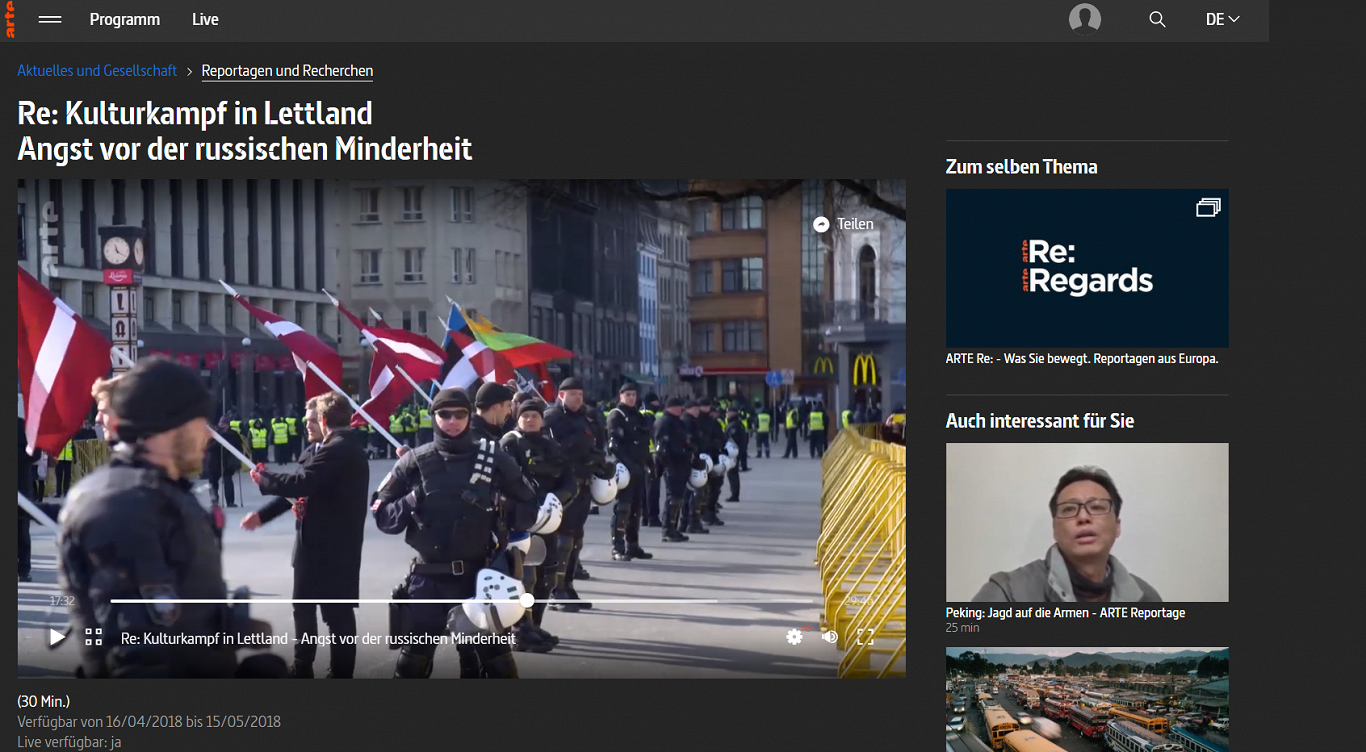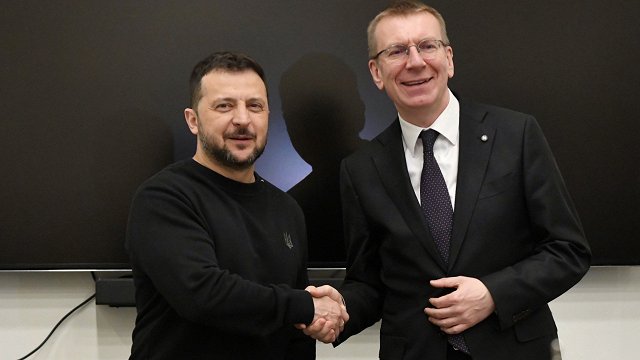The film's principal heroes are lawyer Elizabete Krivcova (a representative of the Harmony party), along with pro-Russia activist Tatjana Ždanoka and Latvian anti-fascist leader Josifs Korens. There is no official comment from the relevant authorities featured in the film.
A similar piece appeared on ARTE in 2015, also featuring Kravcova as one of the principal heroes.
While the film was being made, Latvian journalist Sandra Valtere was contacted by its author Susanne Roser. Valtere, who has been working in German media for thirty years, was glad to help but soon started thinking the story was being drawn along lines familiar to pro-Russia propaganda.
"At one moment I started thinking some sort of ideological, propaganda movie was made about Latvia or Latvian nationalists oppressing the Russian minority in Latvia," said Valtere, who refused to cooperate with the film's author as her behavior seemed suspect.
"She arrived in Latvia in February for five days to see how it's going on the ground here. She hadn't been to Latvia before, and didn't find time to meet me," Valtere said.
"I was made even more cautious by the fact she started sending me links about [extremist] groups in Latvia. I wondered how she got hold of these links. There must have been someone who fed them to her," said Valtere.
The Latvian Embassy in Germany raised objections to the film as well, recounting what the film got wrong about Latvia in an official letter to ARTE.
The letter features refutations of statistics given in the film, as well as of spurious claims like "You can only speak Russian at home - it's forbidden out in the open", or that there are fines in Latvia "for speaking too much Russian".
The embassy said that its comment linking the letter was deleted on a Facebook post about the film.
LTV was unable to obtain comment from ARTE, which is part of the German public-service television ZDF.
Meanwhile the film's author Susanne Roser told LTV she speaks too little English and was too tired to agree for a Skype interview, but she did reveal, on the phone, that she had got the idea of making the film while reading a piece on introducing military training at schools on the Sputnik Russian propaganda wire.
Roser also expressed a strong disapproval of Latvia's move towards teaching school core-curriculum only in the Latvian language. Asked if the particular cast of people chosen in the film doesn't make it less objective, Roser said that it's a human interest rather than a political story.
Politics expert Ivars Ījabs meanwhile told LTV it's impossible to consider the film as an objective reflection of the situation in Latvia, because of the speakers ARTE chose to address. He did not, however, speculate over the possible goals of the film, saying tendentious reports aren't rare in other European media as well.
The integration of Russian speakers is, without a doubt, a principal facet of German views on Latvia, a situation which arose historically due to the fact that, from the late 80s, Latvia has been presented as a state of extremist nationalists, and this strand was later on overtaken by Kremlin propagandists, said Ījabs.
In Germany, the topic of Latvia's Russian minority was especially topical during the Crimean crisis, while interest has gradually died down during the last few years. Nevertheless, when it's being reported on tendentiously, it's up to the diplomats to offer the views of the other party and to try explain the real situation, the politics expert said.



























